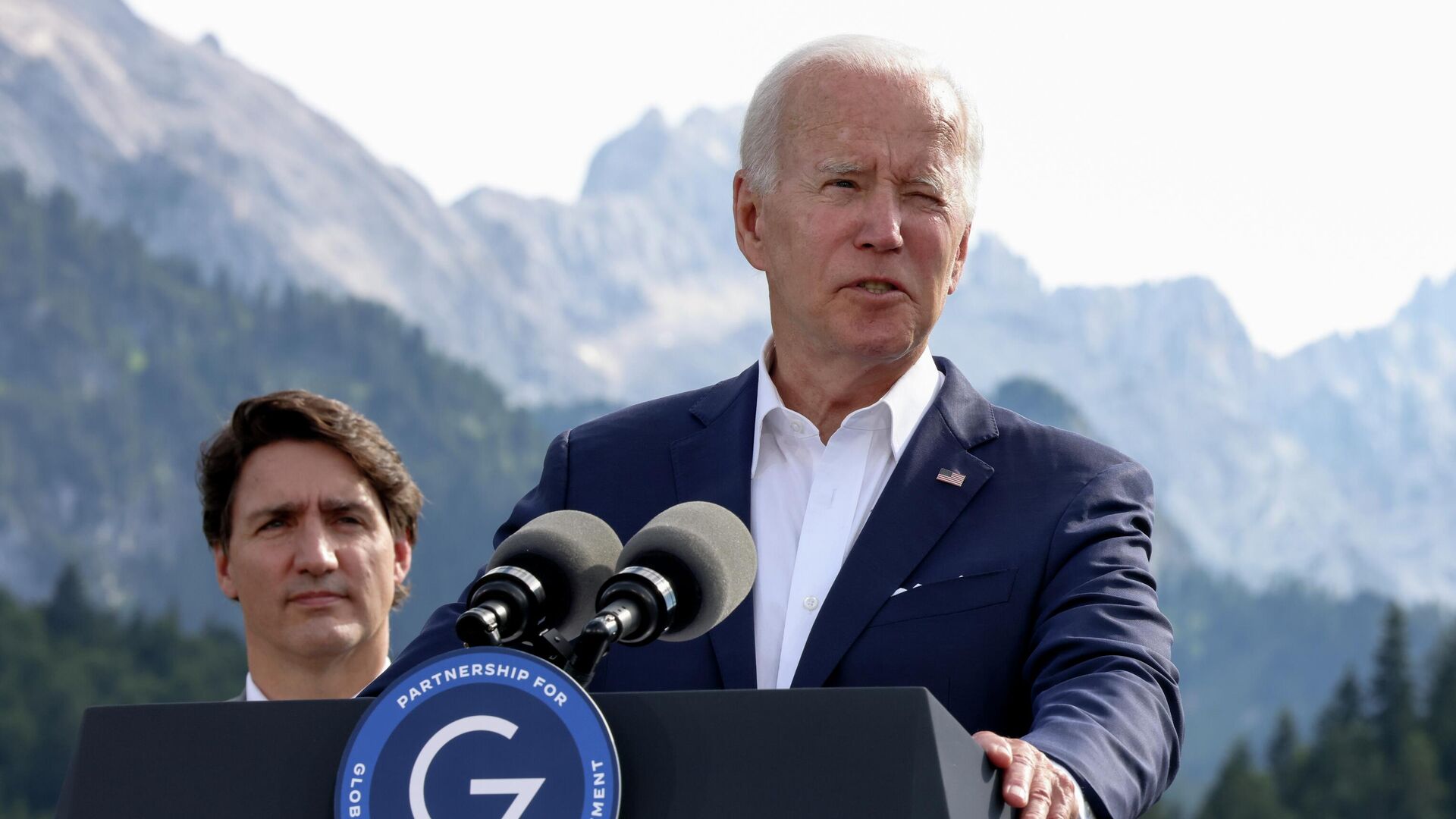https://sputnikglobe.com/20230324/canada-wants-to-project-itself-as-a-pacific-power-through-a-new-anti-chinese-framework-scholar-1108748592.html
Canada Wants to Project Itself as a Pacific Power Through a New Anti-Chinese Framework: Scholar
Canada Wants to Project Itself as a Pacific Power Through a New Anti-Chinese Framework: Scholar
Sputnik International
As Canada has proposed creating yet another security alliance in East Asia aimed against Russia and China, it would be safe to assume that it would cause further instability in the region.
2023-03-24T12:25+0000
2023-03-24T12:25+0000
2023-03-24T12:25+0000
world
canada
us
south korea
japan
pact
https://cdn1.img.sputnikglobe.com/img/07e6/06/1a/1096679258_0:0:3054:1719_1920x0_80_0_0_87d209ba4a7d903ff1c4e09c765eadac.jpg
Tensions in East Asia and the Pacific may soon reach a whole new level as Canada’s Prime Minister Justin Trudeau has reportedly pitched an idea of a new anti-Chinese security framework which, along with his country, would include the United States, South Korea and Japan.Joseph Camilleri, emeritus professor at La Trobe University in Melbourne and one of Australia's leading international relations scholars, weighed in on this issue, explaining to Sputnik what goals the Canadian leadership is likely pursuing with this proposal.According to Camilleri, Canada's plan for this four-way security framework is "not unexpected," as it appears in line with the country's "deteriorating relationship with China."This proposed North Pacific equivalent of the Quadrilateral Security Dialogue may well come to pass, Camilleri said, noting that its concept "fits neatly with the grand US strategic design to contain Russia and China through NATO's expansion in Europe and the creation of a string of alliances and partnerships in Asia Pacific."He also pointed out that this framework is rather unlikely to improve security and stability in the region.
canada
south korea
japan
Sputnik International
feedback@sputniknews.com
+74956456601
MIA „Rossiya Segodnya“
2023
Sputnik International
feedback@sputniknews.com
+74956456601
MIA „Rossiya Segodnya“
News
en_EN
Sputnik International
feedback@sputniknews.com
+74956456601
MIA „Rossiya Segodnya“
Sputnik International
feedback@sputniknews.com
+74956456601
MIA „Rossiya Segodnya“
canada security framework,
canada security framework,
Canada Wants to Project Itself as a Pacific Power Through a New Anti-Chinese Framework: Scholar
As Canada has proposed creating yet another security alliance in East Asia aimed against Russia and China, it would be safe to assume that it would cause further instability in the region, as Moscow and Beijing would likely regard it as a hostile initiative.
Tensions in East Asia and the Pacific may soon reach a whole new level as Canada’s Prime Minister Justin Trudeau has reportedly pitched an idea of a new anti-Chinese
security framework which, along with his country, would include the United States, South Korea and Japan.
Joseph Camilleri, emeritus professor at La Trobe University in Melbourne and one of Australia's leading international relations scholars, weighed in on this issue, explaining to Sputnik what goals the Canadian leadership is likely pursuing with this proposal.
According to Camilleri, Canada's plan for this four-way security framework is "not unexpected," as it appears in line with the country's "deteriorating relationship with China."
"The Canadian government's approach is dictated by its fraying relationship with China, its wish to project Canada as a Pacific power, and most importantly, its subservience to US strategic interests and priorities," he explained.
This proposed North Pacific equivalent of the Quadrilateral Security Dialogue may well come to pass, Camilleri said, noting that its concept "fits neatly with the grand US strategic design to contain Russia and China through NATO's expansion in Europe and the creation of a string of alliances and partnerships in Asia Pacific."
He also pointed out that this framework is rather unlikely to improve security and stability in the region.
"Canada's proposal is openly aimed at countering China, Russia and North Korea," the scholar elaborated. "It is safe to assume that both China and Russia will see it as another hostile initative, and therfore likely to provoke an action-reaction cycle that can only add to regional and global instability and insecurity."


